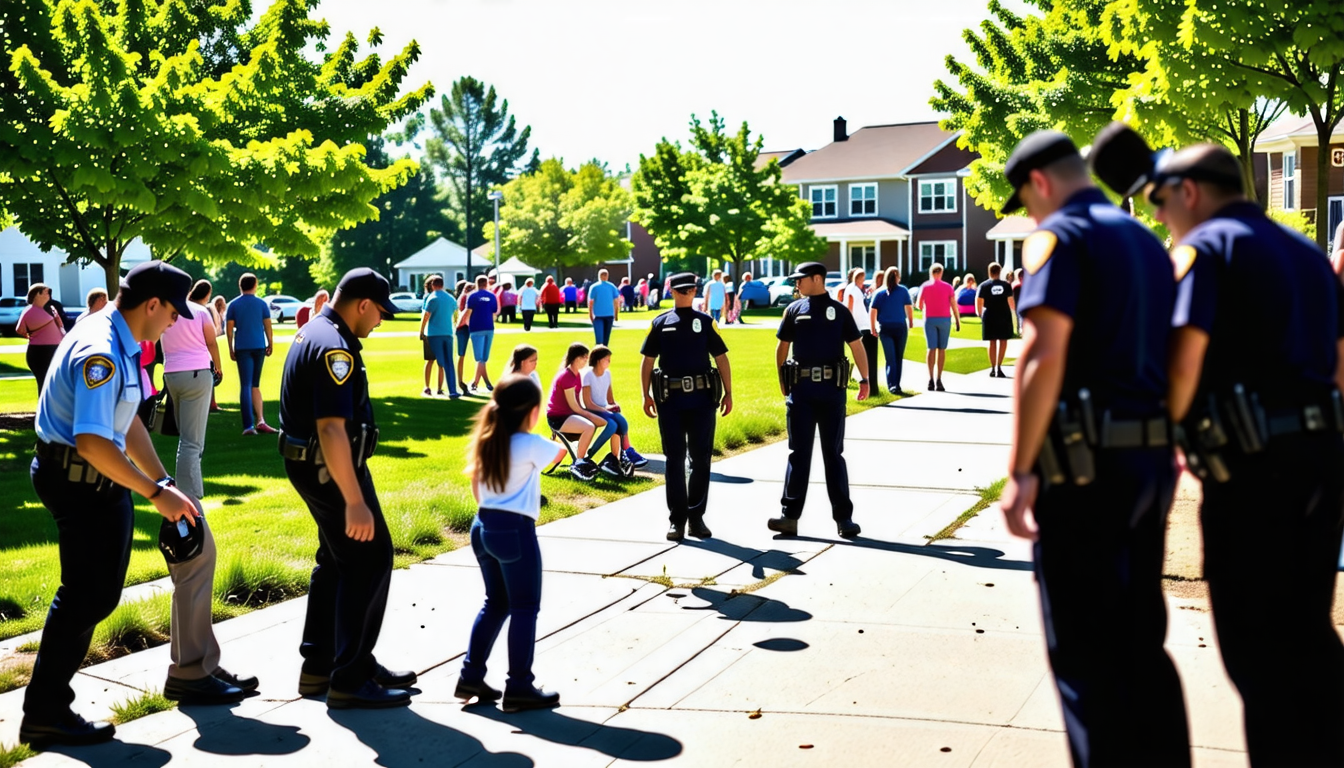|
IN BRIEF
|
In the realm of law enforcement, specialty units play a critical role in addressing specific challenges that go beyond traditional policing methods. In Canada, police forces are not merely concerned with law enforcement; they are also dedicated to enhancing public safety through a multitude of specialized divisions. These units are trained to tackle various scenarios, ranging from crisis intervention to major crime investigations. The presence of such units within Canadian police services allows for more tailored responses to complex issues, ensuring that law enforcement agencies can operate effectively while safeguarding the community. As we delve deeper into the structure and functions of these specialized policing units, it becomes evident that their contributions are indispensable in maintaining peace and order across the nation.
In the realm of law enforcement, specialty units play an essential role in maintaining public safety and investigating crimes effectively. Across Canada, various police forces have developed specialized divisions tailored to address specific challenges within their communities. This article delves into these units, exploring their purposes, structures, and the advantages they provide to the overarching Canadian police system.
The Evolution of Specialty Units
Over time, specialty units have evolved to adapt to changing societal needs and technological advancements. As the landscape of crime and community issues transforms, so too must the practices and training of these specialized teams. Continuous training and development opportunities are critical to ensure their effectiveness. The RCMP emphasizes professional growth through comprehensive training programs designed to equip officers with the latest skills and knowledge to confront contemporary challenges.
Examining the range of specialty units within Canadian police forces illustrates their pivotal importance in the landscape of law enforcement. As communities face diverse challenges, these specialized divisions are at the forefront, ensuring that local, provincial, and federal agencies can collaborate to maintain safety and justice. With ongoing efforts to evolve and adapt, the future of law enforcement remains focused on building better relationships with the communities they serve.
Types of Specialty Units in Canada
Canadian law enforcement agencies encompass a variety of specialty units, each designed to address particular needs within their jurisdictions. Generally, three principal categories emerge: tactical units, investigative divisions, and community-focused teams.
In Canada, specialized policing units play a crucial role in enhancing law enforcement’s effectiveness and efficiency. These units, including Crisis Intervention, Public Order, and Protective Policing, are designed to address specific challenges that local and federal police forces face. According to recent statistics, nearly 1 in 4 police departments utilize such specialized units, demonstrating their growing prominence in the field.
Furthermore, the Royal Canadian Mounted Police (RCMP) oversees various specialized divisions that provide operational support not only to its officers but also to other law enforcement agencies. Programs under the National Police Services deliver critical resources that improve crime detection, deterrence, and prosecution across the country. For example, forensic services and criminal profiling units contribute significantly to investigations, enhancing evidence collection methods and accuracy.
Additionally, the Toronto Police Service has established its Specialized Operations Command, which includes Emergency Management and Public Safety initiatives. This structure allows the police to respond more effectively to major crimes and public safety incidents. Collectively, these specialized units reflect the adaptability of the Canadian police system in addressing evolving crime trends and community needs. For more information, visit this resource.
Within the landscape of Canadian law enforcement, specialty units play a crucial role in enhancing public safety and addressing complex challenges. These specialized policing units, ranging from Crisis Intervention Teams to Emergency Task Forces, are designed to tackle specific types of incidents and improve community relations. Furthermore, the integration of National Police Services supports these units by providing essential resources and expertise necessary for effective crime detection and prosecution. Each unit requires dedicated training and a firm commitment, ensuring that officers are well-equipped to handle the unique demands of their roles. This specialization not only enriches law enforcement capabilities but also fosters a safer environment for all Canadians.
FAQ
What are specialized units in Canadian police forces?
R: Specialized units in Canadian police forces are groups of officers trained to address specific types of incidents or criminal behavior. These units often focus on areas such as crisis intervention, protective policing, and public order to enhance law enforcement effectiveness.
How do specialized units support law enforcement?
R: Specialized units provide critical operational support by utilizing advanced techniques and tools designed for unique situations, enabling police forces to manage complex crimes more efficiently and ensuring public safety.
What are the benefits of being part of a specialized unit?
R: Being part of a specialized unit allows officers to engage in focused training, develop expertise in a specific field, and participate in more diverse and challenging assignments, ultimately leading to a more rewarding career in law enforcement.
What types of specialized services do Canadian police forces offer?
R: Canadian police forces offer various specialized services, including emergency response teams, marine units, detective operations for major crimes, and other units that enhance the investigation and prosecution of crime.
How does training for specialized units differ from regular police training?
R: Training for specialized units is often more intensive and focused than regular police training. It includes advanced skills in areas such as forensic analysis, negotiation tactics, and crisis management, preparing officers for the specific challenges they may encounter in their roles.
